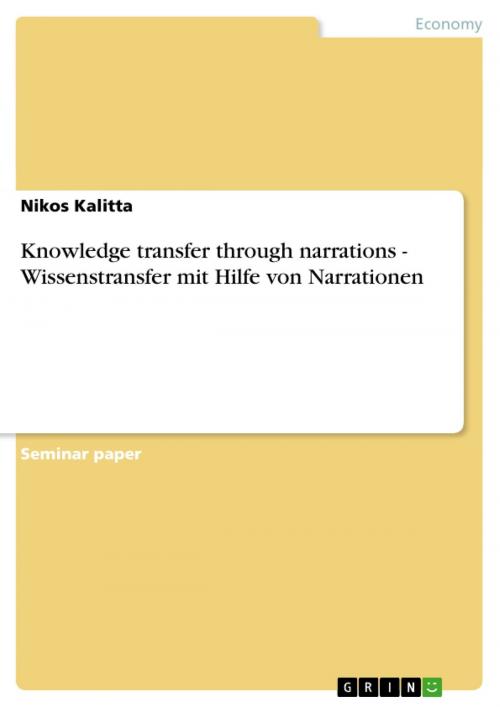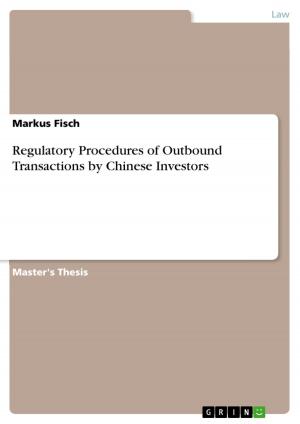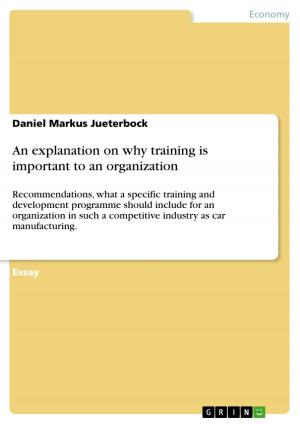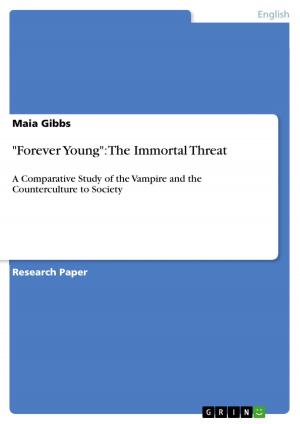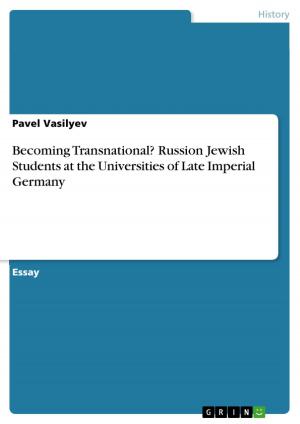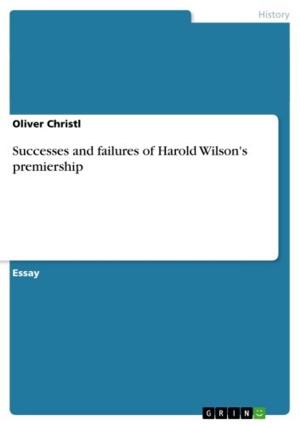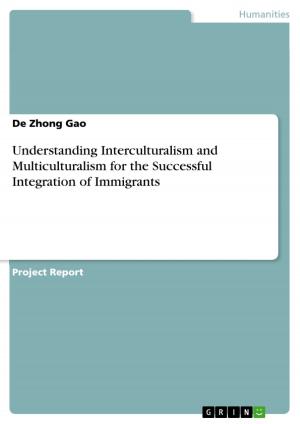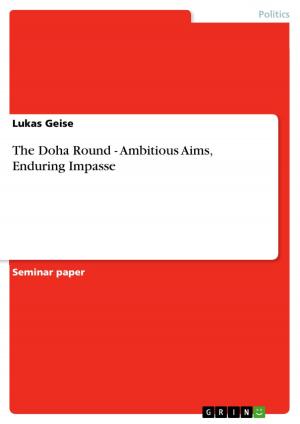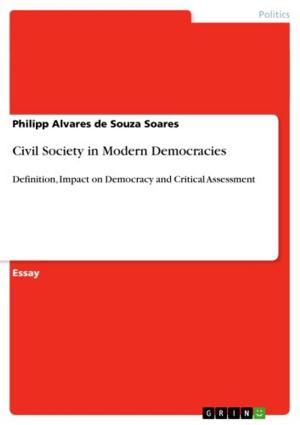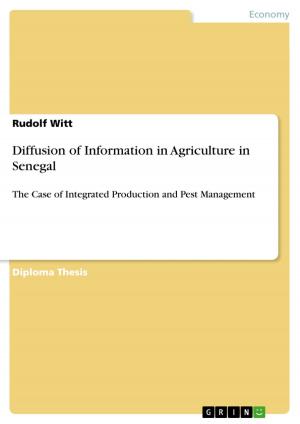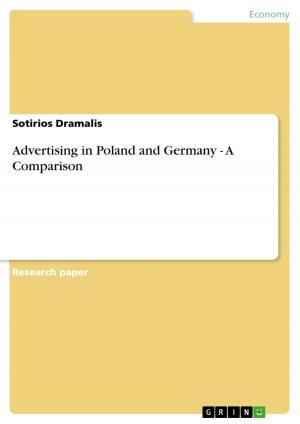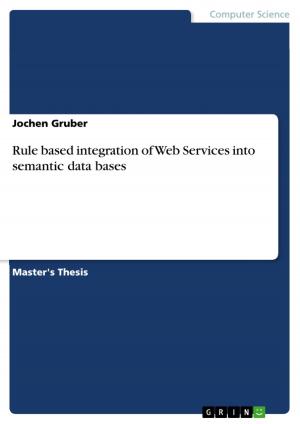Knowledge transfer through narrations - Wissenstransfer mit Hilfe von Narrationen
Wissenstransfer mit Hilfe von Narrationen
Business & Finance, Management & Leadership, Management| Author: | Nikos Kalitta | ISBN: | 9783638326971 |
| Publisher: | GRIN Publishing | Publication: | November 22, 2004 |
| Imprint: | GRIN Publishing | Language: | English |
| Author: | Nikos Kalitta |
| ISBN: | 9783638326971 |
| Publisher: | GRIN Publishing |
| Publication: | November 22, 2004 |
| Imprint: | GRIN Publishing |
| Language: | English |
Seminar paper from the year 2004 in the subject Business economics - Business Management, Corporate Governance, grade: none, Free University of Berlin (Institute for Management, Organisation and Leadership), course: Knowledge in Organisations, 34 entries in the bibliography, language: English, abstract: In recent years knowledge has become one of the most central themes in managerial science. Knowledge at all gains a high importance in social and corporate life and is seen as a success factor which is indispensable to pass the competition in agressive markets. Organisations are seen as systems of knowledge which have to acquire knowledge through processes of learning and self generating1. Popular buzzwords and concepts of managerial and organis ational science like the knowledge spiral, knowledge intensive firms and the proclamation of a knowledge society underline the meaning of knowledge in the current scientific debate. In this context the intra- and extraorganisational transfer of knowledge is widely discussed. Alongside the formalisation of knowledge transfer e.g. by means of databases and standardised training methods, the more informal knowledge transfer through narrations, myth and anecdotes approaches in the focal point2, because conventional knowledge management methods hit upon their frontiers when it is required to cover and confer 'soft' knowledge which is difficult to access and elusive. Sharing knowledge through stories is emerging as a powerful way to exchange and consilidate knowledge. So it is not astonishing that stories and their possible impact in increasing the operating efficiency are worldwide observed among general practitioners as well3. The aim of this paper is to give an overview about the possibilities and restrictions of knowledge transfer through narrations. Starting with a review, some theoretical common definitions are presented by a following characterisation of organisational stories and naming their functions in organisational life. In the principle part the paper tries to define the disposition of knowledge transferred through stories and to show exe mplary the transfer of narrative knowledge among communities of practice and also the transfer of knowledge about the organisational culture. Afterwards some possible contributes of storytelling for organisational training effectivness are exemplified. The last part tries to identify possible boundaries and weak points of knowledge transfer through narrations and draws a short survey.
Seminar paper from the year 2004 in the subject Business economics - Business Management, Corporate Governance, grade: none, Free University of Berlin (Institute for Management, Organisation and Leadership), course: Knowledge in Organisations, 34 entries in the bibliography, language: English, abstract: In recent years knowledge has become one of the most central themes in managerial science. Knowledge at all gains a high importance in social and corporate life and is seen as a success factor which is indispensable to pass the competition in agressive markets. Organisations are seen as systems of knowledge which have to acquire knowledge through processes of learning and self generating1. Popular buzzwords and concepts of managerial and organis ational science like the knowledge spiral, knowledge intensive firms and the proclamation of a knowledge society underline the meaning of knowledge in the current scientific debate. In this context the intra- and extraorganisational transfer of knowledge is widely discussed. Alongside the formalisation of knowledge transfer e.g. by means of databases and standardised training methods, the more informal knowledge transfer through narrations, myth and anecdotes approaches in the focal point2, because conventional knowledge management methods hit upon their frontiers when it is required to cover and confer 'soft' knowledge which is difficult to access and elusive. Sharing knowledge through stories is emerging as a powerful way to exchange and consilidate knowledge. So it is not astonishing that stories and their possible impact in increasing the operating efficiency are worldwide observed among general practitioners as well3. The aim of this paper is to give an overview about the possibilities and restrictions of knowledge transfer through narrations. Starting with a review, some theoretical common definitions are presented by a following characterisation of organisational stories and naming their functions in organisational life. In the principle part the paper tries to define the disposition of knowledge transferred through stories and to show exe mplary the transfer of narrative knowledge among communities of practice and also the transfer of knowledge about the organisational culture. Afterwards some possible contributes of storytelling for organisational training effectivness are exemplified. The last part tries to identify possible boundaries and weak points of knowledge transfer through narrations and draws a short survey.
